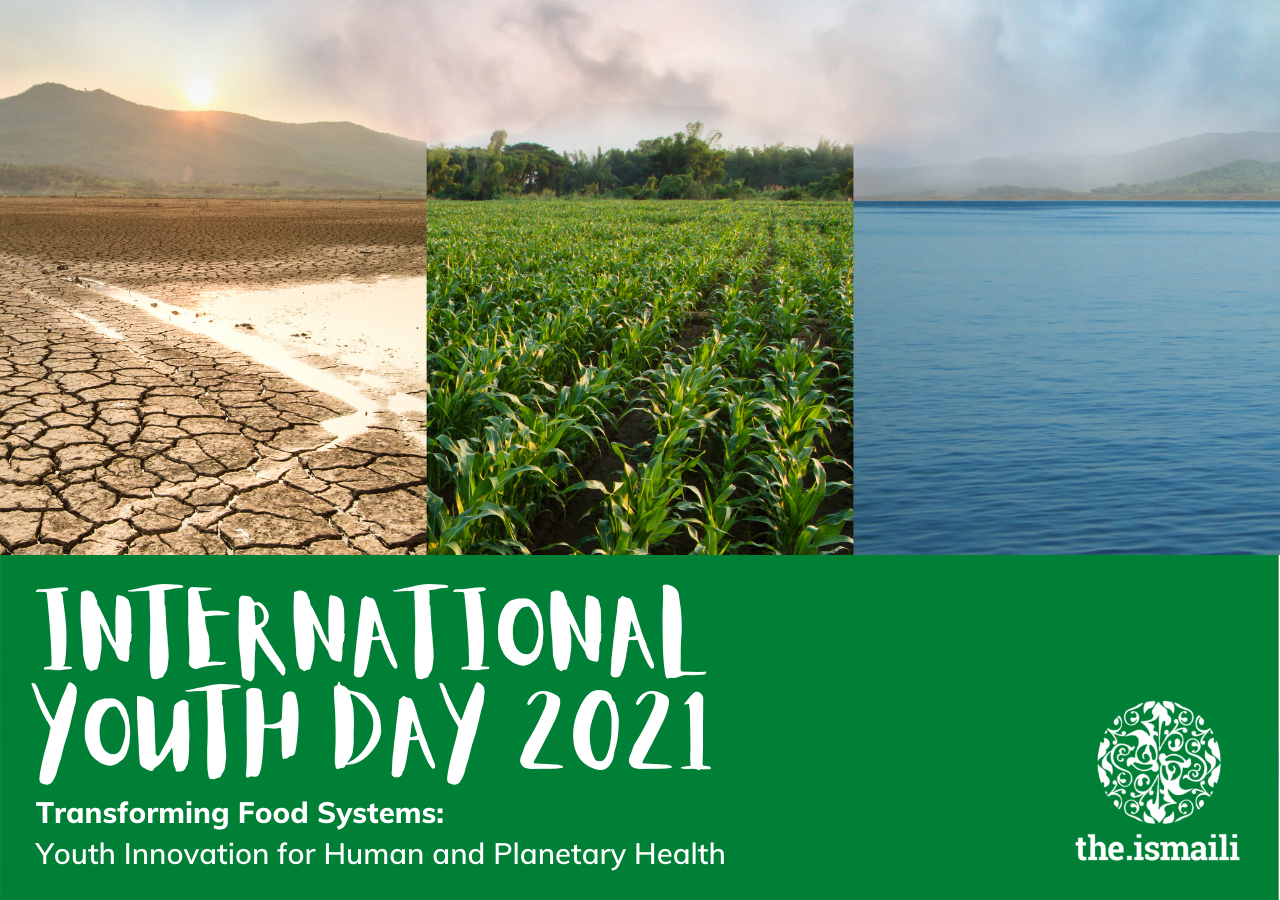Accoriding to the United Nations, the world’s population is expected to increase by 2 billion people within the next 30 years. Yet, simply producing more food will not be enough to ensure the future wellbeing of society and the planet. A number of related challenges will need to be addressed, including poverty reduction, improving health care systems, biodiversity conservation, social inclusion, and climate change mitigation.
To address these challenges, this year’s International Youth Day theme is “Transforming food systems and planetary health,” a timely topic in light of the rapidly changing climate, wildfires, and other extreme weather events being experienced around the world.
“When we talk about the climate crisis, many of us talk about the fact that we need to save the planet, when in fact what we need to do is save human existence on the planet,” recently said Onno Ruhl, General Manager of the Aga Khan Agency for Habitat.
“The way to think about it is that we need to restore the equilibrium between humans and nature on the planet so that both can survive… without that equilibrium, it won’t work.”
The consensus among most scientists today is that recent generations of humans have disrupted this balance. Restoring it will require societies worldwide to actively engage with the challenges that the natural world presents, whether in the form of natural disasters, health epidemics, or food shortages.
One way of addressing food shortages in a sustainable way is through urban agriculture. The innovative practice is becoming ever more popular, with gardens springing up in cities in Australia, Canada, the United States, the UK, France, and New Zealand.
Nabeela Lakhani was one of ten farmer-entrepreneurs in the pilot programme of Square Roots Grow, an urban farming accelerator in New York City. Participants of the programme harvested produce using technologies such as LED lights and a liquid nutrient solution instead of soil, methods that allow for food to be grown all-year round.
“I hope that this technology will usher in a new age in which people will increasingly gravitate toward hyper-local, pesticide-free crops,” Nabeela said. “All we are looking for - is food that we can trust.”
Rozina Kanchwalla is the founder and executive director at Eco.Logic, based in the USA. She has worked in the environmental field in different parts of the world for over 15 years, and has first-hand experience of the damaging effects of changing weather patterns.
“I’ve noticed that climate change has real impacts on people, whether it’s farmers in India or farmers in the midwest of the US who can’t grow crops because of droughts,” she said.
In recent decades, the modern agricultural system has become extremely carbon-intensive, which has led to climate change impacts such as droughts and flash floods, which prevent local farmers’ ability to grow crops for food.
A vicious cycle is created by clearing forests to make space for livestock, which leads to increases in methane, a so-called greenhouse gas. This harm is compounded by the use of chemicals which degrade the soil, and the practice of transporting food by air and road, leading to further carbon emissions and global heating.
“As much as possible, if you can grow food at home, if you can shop from a farmer’s market, or if you can look for food that doesn’t have a lot of chemical inputs like fertilisers or pesticides, then that would be really beneficial,” said Rozina.
By striving to move to more decentralised, local, organic food systems, we can each do our part to take part in the aims of this year’s International Youth Day, and build a cleaner, more sustainable world for the next generation.








